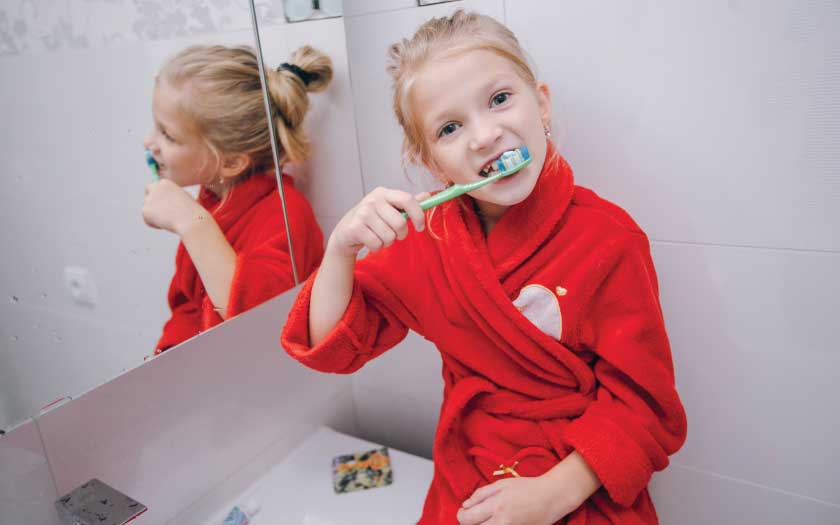Taking good care of their bodies is a boring concept for kids. This includes oral care so parents have to take the initiative to instill beneficial habits in their children that will hopefully last a lifetime.
Fact
One of the most common health issues in young children is dental caries. It’s said to be five times more prevalent than asthma.
Dental issues
Tooth decay and cavities are caused by caries, a disease that damages the structure of the teeth. The practice of good oral hygiene is essential in preventing early childhood caries.
Developing good oral hygiene is also the first line of defense against common dental problems such as the following:
- Plaque: This is easily missed as it is not visible. This whitish substance develops and clings to the teeth when food is mixed with bacteria and saliva.
- Tooth decay: Decay occurs when small holes, or cavities, form in the tooth. Plaque is the main culprit of tooth decay, especially when sugar comes in contact with the bacteria in your mouth.
- Gum disease: It’s an infection or inflammation of the gums surrounding the teeth. Unhealthy gums are exposed to plaque and can cause an inflammation called gingivitis.
- Halitosis is the technical term for bad breath. It is caused by the unhealthy buildup of plaque and the inflammation or infection of the gums.
Teaching your child good oral hygiene techniques is important for their oral health and will help to alleviate all of the conditions above. Good teeth-brushing techniques should be taught from an early age so that kids will have a better chance of taking good care of their pearly whites. Parental guidance and/or aid in dental care (brushing, flossing, etc.) for children should continue constantly until they have mastered proper oral hygiene techniques.

Children’s oral hygiene should not be taken from granted just because they know some basic tooth-brushing skills – They should be checked upon and oral care lessons should be reinforced, with parental guidance continuing until they are truly capable of managing their daily oral care. It should include cleaning the mouth at least twice a day. Children’s daily routine should include:
- Brushing their teeth. They should brush their teeth for two full minutes with an age-appropriate toothpaste. Toothbrushes should be replaced every three months.
- Flossing. The practice of flossing helps keep your child’s mouth free from bacteria. Ask your dentist about the best times for flossing for a child.
- Using mouthwash. In addition to getting rid of small pieces of debris, rinsing is a great way to keep your child’s gums healthy. Choose a mouthwash that is safe and suitable for children.
Ways to encourage oral hygiene for kids
- Be a good role model. Children see, children do, so brush your teeth, floss, and rinse in front of your children so they can learn by example.
- Interesting toothbrushes. Electric toothbrushes are extremely fun for your child, where else musical toothbrushes play for the recommended two-minute duration encouraging your child to keep brushing for the optimal time.
- Fancy dental floss holders. Your child may be more encouraged to break off a piece of floss if they are pulling it out of a fancy container. Many dentists also recommend one-time flossers, which come in fun shapes and are easier to use and more child-friendly.
Importance of the dentist visits
A visit to the dentist every six months should be a must. A dentist will be able to provide the professional care and advice that will help in keeping a child’s teeth and gums healthy.
Dealing with anxiousness about dentist visits
It’s natural for kids to be a bit apprehensive about visits to the dentist. Encourage your child to discuss any fears he or she might have about visiting the dentist. You can try scheduling your appointment before theirs so that your child can watch and have a chance to see what happens during a dental visit and observe your behavior throughout the appointment. This will be your chance to prove to them that there is nothing to be worried about.


